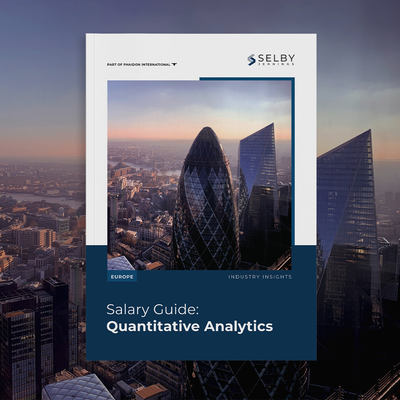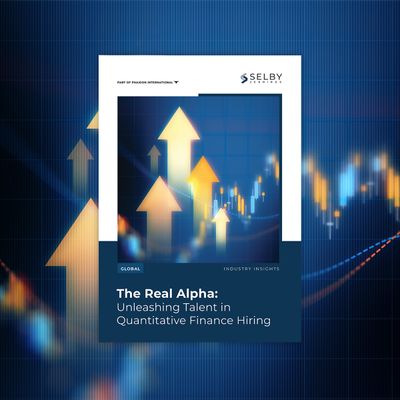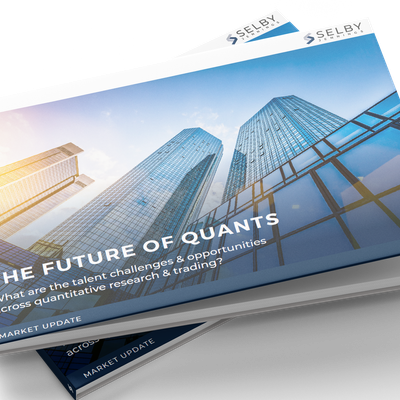quantitative-research-and-trading
Expanding Quants Talent in the UK
The United Kingdom's status as a global financial hub relies on its ability to attract and develop top talent in the field of Quantitative Finance, commonly known as Quants. As the financial industry becomes increasingly data-driven and technology-centric, the demand for skilled Quants professionals continues to rise. Expanding the Quants talent pool in the UK is not only crucial for maintaining the country's competitive edge but also for driving innovation and economic growth. In this article, we will explore the importance of expanding Quants talent in the UK and discuss strategies to achieve this goal.Strengthening Academic ProgramsOne of the primary avenues for expanding Quants talent in the UK is through strengthening academic programs. Collaborations between universities, industry practitioners, and regulatory bodies can help design and update curricula that align with the evolving needs of the finance industry. This involves integrating courses on advanced mathematics, statistical modeling, computer science, and financial theory to provide students with a comprehensive skill set required in the Quants field.Additionally, universities can establish partnerships with financial institutions to offer internships, apprenticeships, and research opportunities. Such programs provide students with practical exposure to real-world financial scenarios, fostering a seamless transition from academia to the industry. By enhancing the quality and relevance of academic programs, the UK can produce a steady stream of highly skilled quants professionals.Promoting Continuous Professional DevelopmentExpanding Quants talent in the UK also necessitates a focus on continuous professional development. The fast-paced nature of the finance industry demands that Quants professionals stay updated with the latest methodologies, technologies, and regulatory changes. Encouraging and supporting ongoing learning and professional certifications ensures that existing Quants talent remains relevant and adaptable.Financial institutions and industry organizations can play a pivotal role in this regard by offering training programs, workshops, and conferences tailored to the specific needs of Quants professionals. Collaborative initiatives between industry leaders, professional bodies, and academic institutions can provide access to cutting-edge research, industry insights, and networking opportunities, creating a culture of lifelong learning and growth.Fostering Industry-Academia PartnershipsStrong partnerships between the finance industry and academic institutions are essential for expanding Quants talent in the UK. Financial institutions can contribute to curriculum design, offer guest lectures, and provide industry projects or case studies that allow students to apply their knowledge in real-world scenarios. Simultaneously, universities can establish career centers, organize job fairs, and facilitate networking events that connect students with potential employers in the finance industry.Collaborative research programs between academia and industry can also drive innovation in the field of Quantitative Finance. By bridging the gap between theoretical research and practical application, these initiatives can yield valuable insights and advance the state-of-the-art in Quants methodologies.Encouraging Diversity and InclusionExpanding Quants talent in the UK should prioritize diversity and inclusion. Historically, the finance industry has faced challenges in achieving gender and ethnic diversity in Quants roles. To address this, efforts should be made to eliminate unconscious biases and promote equal opportunities for underrepresented groups.Financial institutions can implement diversity initiatives, such as mentorship programs and scholarships, to attract a diverse pool of talent. Collaboration with professional organizations focused on diversity in finance can also provide networking opportunities and support systems for individuals from underrepresented backgrounds. By embracing diversity and inclusion, the UK can unlock a wider range of perspectives and experiences, leading to enhanced innovation and problem-solving within the Quants field.Partner with Selby Jennings to Unlock the Potential of Quants Talent ExpansionExpanding the Quants talent pool in the UK is crucial for driving innovation and maintaining a competitive edge in the finance industry. By partnering with Selby Jennings, a trusted talent consultancy specializing in the financial sector, organizations can access our extensive network, industry expertise, and tailored hiring strategies. At Selby Jennings, we understand the unique needs of the finance industry and can identify and attract top Quants professionals who align with your organizational objectives. To unlock the potential of Quants talent expansion, request a call back today and take the first step towards securing the niche talent available.
Read More

















